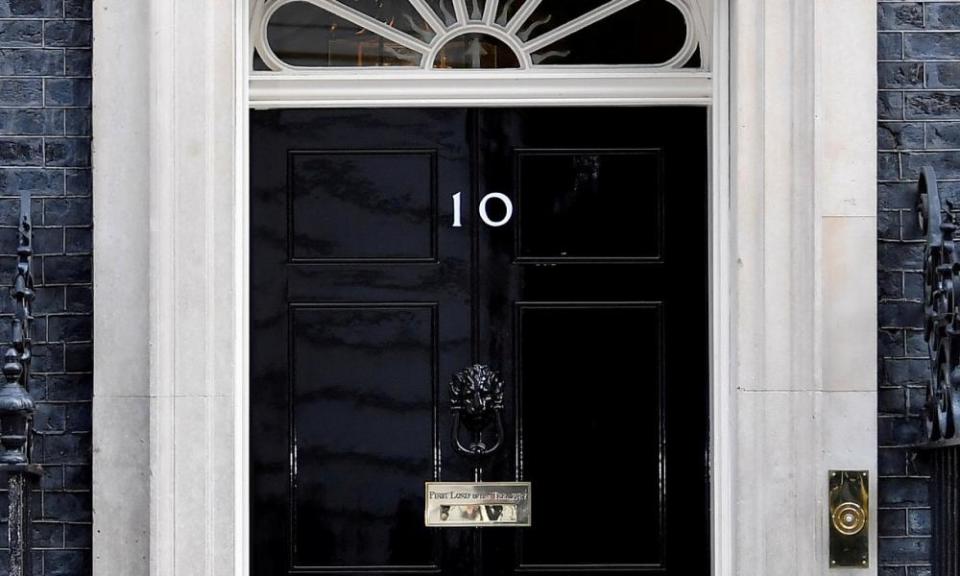When council leaders petition No 10 to end austerity, things are bad

With the budget barely more than a week away, the queue of desperate petitioners would stretch down Whitehall far out of sight. If austerity is over, who’s first in line? In the battle of crises, whose need is greatest?
This morning an actual petition was handed into No 10 by one sector that has suffered among the worst in the great state shrinkage of the last eight years – local government. Nick Forbes, leader of Newcastle city council, handed in a plea signed by all Labour local government leaders to stop the next round of cuts – the next £1.3bn due to be lopped off in April. If that axe falls again, Theresa May’s “austerity is over” conference message was pure deceit.
Though Tory county councils have made the headlines, with Northamptonshire going bankrupt and others such as Somerset and East Sussex teetering on the brink of going bust, it has been Labour’s northern metropolitan areas that have taken the biggest hit. Right from the start, Liverpool was cut deepest, Dorset least. Forbes says the Labour towns and cities had to tighten a tourniquet round their spending from year one, while the county councils drifted along and have only now hit a brick wall. ”We’ve already been through the pain barrier. Now it’s hitting them, and they’re not prepared, after all these years of boasting that they froze their council tax rates.”
Trying to save Tory county councils, Forbes says the government is debating ways to shift more funds towards their own: they want “rurality” to attract more financial weighting than deprivation – which would be another shocking redistribution away from places of greatest need. Newcastle was the pilot city for rolling out universal credit, hit first. Its effects combine with the multiple cuts rolling through the city. Just one example: in 2010 Newcastle had £18m a year from government ringfenced for its 16 Sure Start children’s centres, but now its gets zero. They are hanging on to just three hubs for family services. Here’s the result: this year the number of children in its care has risen by a staggering 20% in just one year, at horrendous human and financial cost. Forbes says, “That’s the cumulative effect of poverty, causing mental illness, domestic violence, family breakdown.”
With £16bn ripped out of council budgets, he says children’s services and social care are now collapsing. With 60p in every pound gone, far worse is to come. By 2020 all councils will lose every penny of their grant from government, left to rely just on council tax and business rates – and poorest places can raise least. Both these taxes are in urgent need of reform, with property still valued at 1991 rates so every home worth over £350,000 pays the same council tax, with no higher bands.
The chancellor’s dilemma was spelled out by the Institute for Fiscal Studies this week. Just to call a halt to the cuts planned for next year will cost him £19bn. Then there is the promise £20bn for the NHS, which again only stops things getting worse. The enormity of the swathes cut through every service means austerity – by any measure – is destined to last right through the next decade and beyond. This government always said it never intended to return to 2010 spending levels: austerity was always for ever.
Consider the need that has been created – the £12bn benefit cuts still in the pipeline or the 8% cuts to schools with rising pupil numbers or the devastation caused to further education colleges. The cumulative effect of austerity rebounds mainly on to local government, left to sweep up the wreckage. And that is where the blame falls. At their conference before the 2010 election, Tory future ministers gloated that their plan was to “Devolve the axe” so councils had to do the heaviest lifting in deficit-reduction.
Politically, it was a master-stroke. Few voters understand the intricacies of local authority finance, nor which branch of officialdom is responsible for what. When they see those 475 libraries closed or their cars and bikes hit potholes in the road, who do they blame? The council, which is responsible for their most visible services.
That’s why Labour councils hand in their petition today with very little expectation that they will be saved from the axe falling again. They expect to stay at the back of the queue – but it’s a queue for nothing anyway, as austerity goes on and on and on.
• Polly Toynbee is a Guardian columnist

 Yahoo News
Yahoo News 